Living in Brisbane, Australia – An Expats Guide

Are you thinking of living in Brisbane but don’t know where to start your journey?
Brisbane, is the largest city in the state of Queensland and is affectionately known as “Brissie.”
It has long been a firm favourite among British expats seeking sun, space, and a slower pace of life.
Unlike Sydney or Melbourne, Brisbane offers a more affordable cost of living, while still delivering on job opportunities, outdoor adventures, and family-friendly suburbs.
With a population of around 2.4 million, the city is large enough to feel cosmopolitan but small enough to retain its relaxed, welcoming vibe.
One of Brisbane’s biggest drawcards is the weather where you can expect around 283 days of sunshine a year, making barbecues, beach days, and outdoor socialising part of everyday life.
Brisbane is ideal for even the most demanding fashionista, with lively bars and boutique shopping arcades.
Surrounded by lush national parks, world-class beaches, and buzzing cultural spots, Brisbane beautifully blends nature and city life.
Whether you’re relocating for work, family, or lifestyle, Brisbane ticks pretty much all the boxes.
This 2025 expat guide covers everything you need to know about living in Brisbane, from visas and housing to transport, healthcare, and top attractions.
Brisbane’s Origins: A City Built on Indigenous and Colonial Roots
Long before Brisbane became a modern metropolis, it was home to the Turrbal and Jagera peoples, who lived along the riverbanks for thousands of years.
Their deep connection to the land can still be felt today through cultural events, public artworks, and preserved historical sites.
European arrival began in 1823 with explorer John Oxley, followed by the establishment of a penal colony at Redcliffe a year later. The area was named after Sir Thomas Brisbane, then-Governor of New South Wales.
When free settlers arrived in 1842, the city began to grow rapidly, eventually becoming the capital of the newly independent colony of Queensland in 1859.
Key infrastructure such as the Victoria Bridge and rail network helped shape Brisbane into the city we know today.
Despite modernisation, the city has retained many heritage buildings, and its layered history continues to influence Brisbane’s evolving identity.
The Museum of Brisbane (MoB) is the perfect place to find out all you need to know about the city’s history.
Living Like a Local: Brisbane’s Laid-back Way of Life
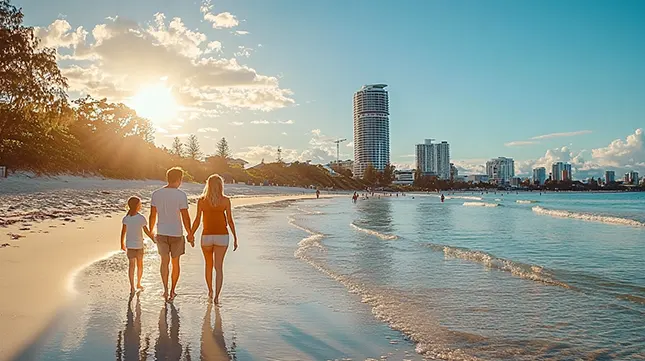
Brisbane offers an excellent lifestyle for expats.
If there is one word to sum up life in Brisbane, it’s “balance.” Work-life balance is more than a catchphrase here. It’s a way of life.
Locals finish work on time and head straight to the river, park, or pub, making the most of the sunshine and open spaces.
The subtropical climate encourages outdoor activities all year round, from paddleboarding and kayaking to hiking and picnicking in the parklands.
Festivals, night markets, and community events are held regularly, making it easy for UK expats to meet people and build a social circle.
Aussies are known for their warmth, and in Brisbane, that’s especially true.
Newcomers are often surprised by how welcoming neighbours and colleagues can be.
If you’re open to saying yes to invites and getting involved, you’ll find yourself part of the local fabric in no time.
Over time, new friends can become like family when you’re living so far from home.
Visas and Paperwork: Your Path to Brisbane
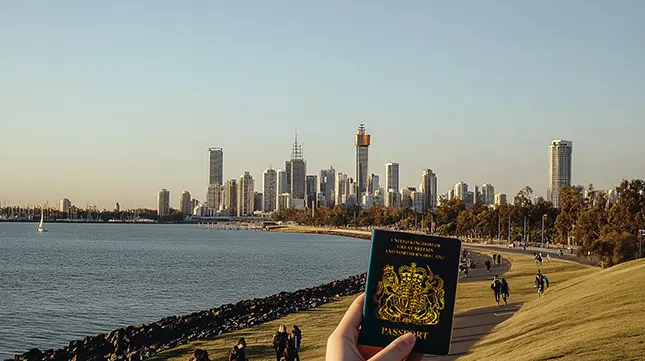
Take note of these essential visa details.
Way, before packing your bags (and your whole house), it’s crucial to understand which visa suits your circumstances.
Most British expats moving to Brisbane opt for the Skilled Independent Visa (subclass 189) or the Employer-Sponsored Visa (subclass 186), depending on job prospects.
The Australian Department of Home Affairs provides a comprehensive visa finder tool, helping you navigate your options.
If you’re moving with children, you must consider school enrolment requirements and dependent visa eligibility.
Processing times vary, so early planning is key.
Some applicants work with a registered migration agent to help with paperwork, especially when navigating skills assessments and points-based criteria.
It’s worth noting that Australia has strict health and character requirements, with police checks and medical exams being standard.
If you’re thinking long-term, permanent residency or citizenship may also be on your radar.
Thankfully, many Brits find the visa process manageable with the right research and support in place.
Finding the Right Migration Agent for Your Move to Brisbane

A good migration agent will make your move far easier.
For UK expats navigating the Australian visa system, using a licensed migration agent can ease the process.
These professionals understand the latest immigration laws, help you choose the right visa, and ensure all paperwork is completed correctly.
Start by searching the Office of the Migration Agents Registration Authority (MARA), which lists all registered and accredited agents.
Look for agents with experience handling UK-to-Australia relocations and positive client reviews. Many provide virtual consultations, so you can begin the process before leaving the UK.
Be cautious of unregistered agents; using a MARA-approved advisor ensures accountability and ethical standards.
Sunshine State: What to Expect from Brisbane’s Climate

Brisbane’s climate is a little different to the UK.
Brisbane enjoys a classic subtropical climate, warm, humid summers, and mild, dry winters.
Summer (December to February) brings high temperatures averaging 29°C, often accompanied by dramatic thunderstorms. It’s also the wettest time of year, so pack light clothes, sunscreen, and a good umbrella.
Autumn and spring are especially pleasant, with temperatures ranging from 20°C to 28°C and lower humidity, perfect for outdoor adventures and beach days.
Winter, from June to August, is dry and mild, with daytime temperatures rarely dipping below 11°C. Unlike the UK, you can comfortably enjoy alfresco dining or a river walk all year round.
Brisbane’s climate goes hand in hand with its lifestyle; think picnics in South Bank Parklands, weekends at the Gold Coast, or early-morning jogs along the river.
While air conditioning is essential in summer, especially in inland suburbs, most Brits find the sunny weather one of the city’s biggest benefits.
Job Market in Brisbane: Where the Opportunities Are

There are several key industries in the city.
Brisbane has a thriving job market, especially in healthcare, construction, education, engineering, and IT.
In 2025, demand remains high for skilled professionals, particularly in regional areas of Queensland.
If you’re a UK expat with qualifications and experience, you may be eligible for a Skilled Migration visa, especially if your job appears on the Queensland Skilled Occupation List.
Job search platforms like Seek, Indeed, and LinkedIn are widely used, and many find roles through recruitment agencies or networking events.
The work culture in Brisbane is relatively relaxed, with a focus on flexibility and work-life balance.
The average salary in Brisbane currently stands at 138,867 AUD (£66,795) significantly higher than the Uks average of £29,669 (stats according to SandOutCV).
While salaries vary by industry, the lower cost of living compared to Sydney means your income can stretch further.
It’s worth noting that local experience is sometimes favoured, so short-term contracts or volunteering may help open doors.
Overall, Brisbane offers strong employment prospects in various sectors, particularly for motivated, skilled newcomers.
Schools and Education: A Family-Friendly City

Living in Brisbane with a family is easy thanks to some excellent schools.
For families moving to Brisbane, the education system is a major consideration; the good news is that it’s excellent.
Queensland offers both public and private schooling options, as well as a number of prestigious international schools.
Public schools are free for permanent residents, while temporary visa holders may need to pay fees, so it’s worth checking your eligibility.
Schooling begins with Prep (age 5–6), followed by primary and secondary education through Year 12.
Some of Brisbane’s top-performing schools include Brisbane State High School, St Aidan’s Anglican Girls’ School, and Brisbane Grammar School.
Check out the 50 Best High Schools in Brisbane and their rankings.
You can discover more about the Australian education system from primary through to higher education vis the government’s website.
Many expiates take time out to study in Australia and Brisbane is home to some world-class universities, including the University of Queensland and Queensland University of Technology QUT, making it a great destination for higher education.
Enrolment typically requires proof of residence, immunisation records, and school reports. Brisbane’s schools and universities are well regarded across Australia, with a strong focus on outdoor activities, creativity, and academic achievement.
Cost of Living in Brisbane: What Expats Can Expect
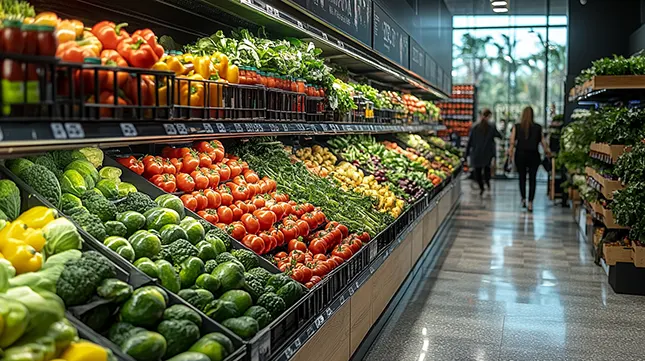
You will have to adjust to the cost of living in Brisbane.
The cost of living is not to be overlooked when you are planning your relocation, it will determine whether or not you can afford to live in Brisbane.
While the city offers a more affordable lifestyle than Sydney or Melbourne, which is one of the reasons it appeals to UK expats, in 2025, rising property prices and inflation continue to push up everyday costs.
Rents, mortgages, groceries, and utility bills have also climbed. That said, wages are generally higher than in the UK, especially in skilled industries, which helps balance the books.
Eating out remains reasonably priced, and public transport is efficient and cost-effective with a Go Card.
Many essentials, such as petrol and electronics, are cheaper than in the UK, although healthcare and school fees can add up if you’re not eligible for subsidies.
By carefully budgeting and choosing your suburb, expats can still enjoy a high quality of life. Brisbane’s sunny climate and outdoor lifestyle mean entertainment doesn’t have to come at a cost.
Using popular cost-of-living tools such as Numbeo and Wise will give you a really good overview of everyday costs.
Knowing you can afford to live in Brisbane will certainly give you peace of mind before you set off on your exciting journey.
Finding a Place to Call Home: Renting in Brisbane

Renting a property is a good option for many expats.
Rental markets are tight in Brisbane, with vacancy rates below 1%, leading to increased rents and heightened competition among tenants.
You need to be ready to move fast.
Popular suburbs for newcomers include family-friendly Ashgrove, riverside New Farm, and the beachy bayside area of Wynnum.
Renting is a popular choice for UK expats when first settling in, offering flexibility and time to explore the city and find the perfect location to suit.
Monthly rent for a three-bedroom property in inner Brisbane averages around AUD 4,000 (£1,911), but prices are lower in the outer suburbs.
Finding a Place to Call Home: Buying in Brisbane
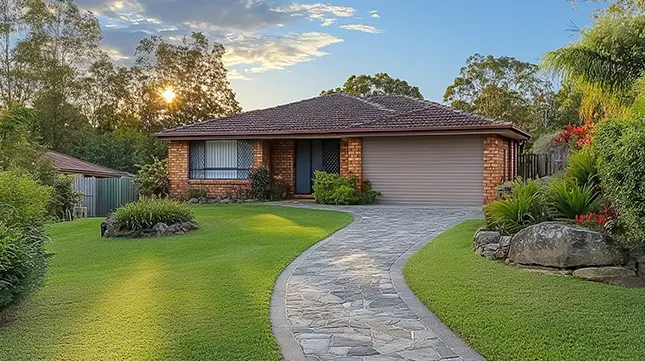
If you are thinking of buying, Brisbane has plenty of homes to choose from.
You truly know that Brisbane is for you long term when you consider purchasing your own home.
Brisbane’s housing market remains robust in 2025, driven by strong population growth and limited housing supply.
Median house prices have surpassed $900,000 (£430,110), with annual growth around 8.6%, so buying a property makes financial sense.
Foreign buyers may face extra stamp duty charges, so it’s wise to check government rules before committing.
Property websites like realestate.com.au and domain.com.au are useful tools whereby you can get a real time feel for the prices, areas and housing available for your budget.
Whether you rent or buy, the Brisbane housing market is more accessible than Sydney or Melbourne, making it a practical choice for those relocating from the UK.
Brisbane’s Efficient Transport Network

You may be surprised by just how good Brisbane’s transport links are.
Brisbane boasts a well-connected public transport system that’s easy for expats to navigate.
TransLink’s network includes buses, trains, ferries, particularly the popular CityCat, which cruises the Brisbane River and offers scenic views along the way.
A reusable Go Card allows for cashless travel across all services and can be topped up online or in convenience stores.
Trains link the CBD with suburbs and the airport, while buses serve the inner city and outer districts.
The system is reliable and cost-effective for those commuting daily, with discounted fares for students and seniors.
Many residents also opt to cycle, thanks to the city’s extensive bikeway network and warm climate.
While driving is common in outer areas, parking in the CBD can be pricey. Brisbane’s transport is one of the easiest for new arrivals to master, helping you confidently explore the city from day one.
Healthcare in Brisbane: What Expats Need to Know

Healthcare in Brisbane is a little different to back in the UK.
Australia has a world-class healthcare system, and expats living in Brisbane benefit from access to both public and private care.
Medicare, the public system, covers essential medical services and hospital treatment for eligible residents, including UK citizens under the reciprocal healthcare agreement.
However, this only applies to temporary, necessary care, so most expats are advised to take out private health insurance for more comprehensive coverage.
Hospitals such as the Royal Brisbane and Women’s Hospital and Mater Hospital Brisbane offer excellent standards of care.
GP clinics are found across all suburbs and often bulk bill, meaning no out-of-pocket costs for Medicare holders.
Emergency services are fast and efficient; many medical professionals have been trained in English-speaking countries.
While expats may need to pay upfront for some services, health rebates and extras cover help reduce long-term costs.
With a little planning, staying healthy in Brisbane is straightforward and pleasingly worry-free.
Bringing Pets with You to Brisbane

Ensure you are well-versed in the laws around bringing pets to Australia.
If you’re planning to bring your furry family members to Brisbane, you must follow strict biosecurity rules.
Australia has one of the toughest pet import regulations in the world, designed to protect native wildlife and agriculture.
Dogs and cats arriving from the UK must meet specific vaccination requirements, including rabies, and undergo health checks before departure.
You’ll need an import permit from the Department of Agriculture, Fisheries and Forestry, and your pet must complete a minimum 10-day stay at the Mickleham quarantine facility in Melbourne, which is unfortunately the only official quarantine centre in Australia.
After that, pets can travel domestically to Brisbane.
It’s important to plan at least 6–7 months in advance to meet all deadlines.
Specialist pet relocation companies can help with paperwork, flights, and animal welfare during the journey.
To find a good pet exporter, visit the International Pet and Animal Association (IPATA) website which lists all member companies.
Brisbane is a very pet-friendly city, with parks, walking tracks, and even dog beaches to welcome your four-legged companions.
Things to See and Do: Brisbane’s Best Bits
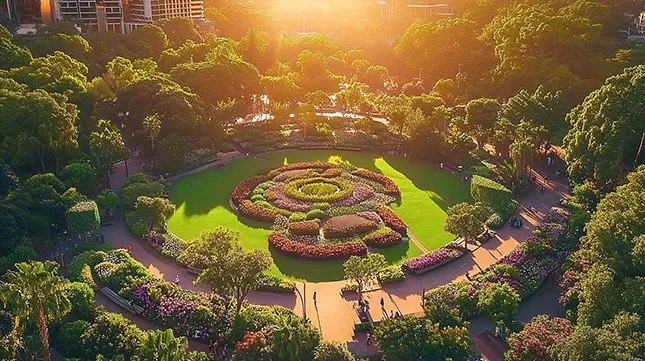
Get out and explore your new home, there’s plenty to do!
Brisbane offers an unbeatable mix of nature, culture, and lifestyle, so it’s no surprise it keeps expats entertained all year round.
For a slice of local life, head to South Bank, where you’ll find the Queensland Museum, QAGOMA, and Streets Beach, a man-made lagoon perfect for cooling off.
Nature lovers will enjoy climbing the iconic Story Bridge, strolling through Roma Street Parkland, or catching a ferry to explore the leafy riverside suburbs.
Foodies can browse local produce at Eat Street Northshore or discover Brisbane’s booming craft beer scene in suburbs like West End and Fortitude Valley.
Families aren’t left out either, with the Lone Pine Koala Sanctuary offering close encounters with native wildlife.
Just outside the city, weekend getaways to the Glass House Mountains or North Stradbroke Island are within easy reach.
Whatever your interests, Brisbane caters to every pace and personality.
These attractions are just the tip of the iceberg, Brisbane has so much more to offer and you can discover what by visiting the panetware website.
Weekend Escapes: Explore Beyond the City
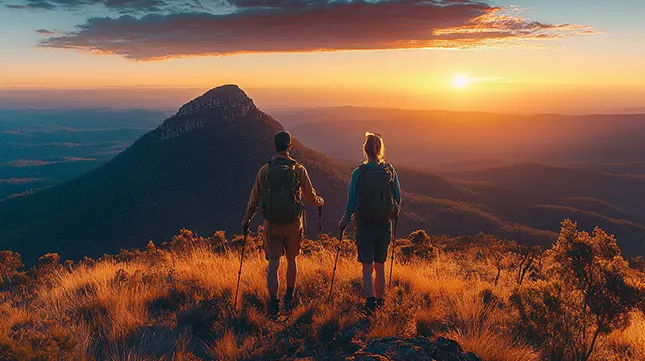
Australia is packed with wonderful places to visit.
One of the best things about living in Brisbane is its proximity to incredible weekend getaways.
Just an hour south, the Gold Coast offers world-famous surf beaches, family attractions, and theme parks like Dreamworld and SeaWorld.
Head north and you’ll find the Sunshine Coast, with its laid-back beach towns, the lush hinterland, and scenic walks through Noosa National Park.
Nature enthusiasts can venture inland to the Scenic Rim, where hiking trails, wineries, and charming country towns await.
You can even head offshore to Moreton Island, a stunning national park where you can snorkel shipwrecks and feed wild dolphins.
Brisbane’s central location means weekend adventures are always within reach, without needing to fly.
Whether you’re chasing waterfalls, seeking a spa retreat, or just fancy a beach picnic, there’s no shortage of day trips to enjoy.
This easy access to nature keeps city life feeling balanced and fresh.
Beaches – Brisbane’s Best
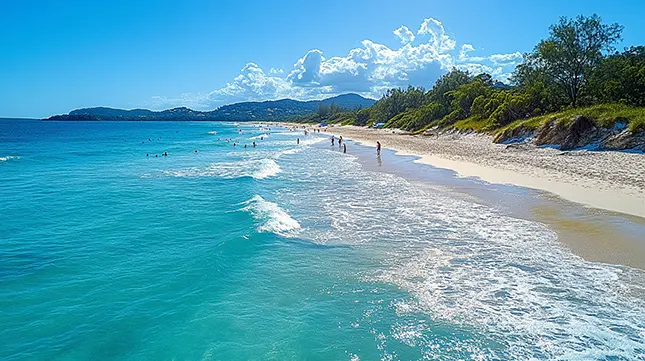
If you like spending time at the beach, living in Brisbane is sure to appeal.
One of the rewards of living in Brisbane is how close you are to some of Queensland’s most beautiful beaches.
While the city itself sits inland along the river, a quick drive or ferry ride will take you to sandy shores perfect for swimming, surfing, and soaking up the sun.
Here are six stunning beaches within easy reach of the city:
- Suttons Beach, Redcliffe
Just 40 minutes from Brisbane, Suttons Beach offers calm waters, picnic spots, and a relaxed atmosphere ideal for families. With a long stretch of sand, a beachfront café, and walking paths, it’s perfect for a peaceful seaside day without straying too far from the city. - Cylinder Beach, North Stradbroke Island
Accessible by ferry from Cleveland, Cylinder Beach is a favourite among locals for its gentle waves, lifeguard patrols, and stunning sunsets. Nestled between two headlands, it’s great for swimming, bodyboarding, and relaxing in a more natural, unspoiled setting. - Woorim Beach, Bribie Island
Located on Bribie Island and about 90 minutes from Brisbane, Woorim Beach is a surf-friendly spot with sweeping views of Moreton Bay. Its wide sandy shore is ideal for beach walks, and it’s one of the few dog-friendly beaches near the city. - Burleigh Heads Beach, Gold Coast
About an hour’s drive south, Burleigh Heads combines golden sands with world-class surf and scenic walking tracks through Burleigh Head National Park. The area also has great cafés, markets, and a laid-back village feel that makes it a favourite weekend escape. - Main Beach, North Stradbroke Island
A more rugged and wild beach, Main Beach stretches for kilometres along North Stradbroke’s eastern coast. It’s perfect for experienced surfers and those wanting solitude. You might even spot whales migrating along the coastline during the winter months. - Tangalooma Beach, Moreton Island
Famous for its crystal-clear waters and dolphin-feeding experiences, Tangalooma Beach feels like a tropical escape just a short ferry ride from Brisbane. The wrecks nearby are ideal for snorkelling, while the beach itself is pristine and perfect for relaxing or swimming.
Riverfront Feasts to Quirky Cafés – Eating Out in Brisbane

There are some wonderful places to eat in the city.
Brisbane’s food scene is as diverse as it is delicious, offering everything from laid-back brunch spots to upscale riverfront dining.
Whether you’re craving Thai street food, Mediterranean tapas, or a classic Aussie steak, this city delivers.
South Bank and Eagle Street are prime locations for scenic meals, with restaurants overlooking the Brisbane River, ideal for a sunset dinner paired with a glass of local wine.
Breakfast is a big deal here, with cafés in suburbs like New Farm, West End, and Fortitude Valley serving up creative dishes in artsy, welcoming settings.
Thanks to Brisbane’s subtropical climate, alfresco dining is the norm, and most venues offer outdoor seating year-round.
The local craft beer scene is booming too, with small breweries pairing house-made ales with modern menus. Australian wines such as Shiraz, Chardonnay, and more are widely available, even if you’re not a connoisseur.
But no matter because, eating out in Brisbane is as much about atmosphere as it is about flavour.
Make Your Move with Confidence: Why Choose White & Company

Once you’ve decided to relocate to Brisbane, the final (and often most daunting) step is organising the safe shipment of your household belongings.
That’s where White & Company can help.
With decades of experience in international removals, we specialise in seamless relocations to Australia, offering both full and part load shipping options to suit your needs and timeline.
Our expert team will carefully export wrap, pack, and prepare your items for transit, ensuring everything arrives safely and efficiently.
Need storage? We provide secure, accredited facilities that meet European standards, giving you added flexibility during your move.
Once in Brisbane, our trusted local partners handle customs clearance and coordinate the smooth delivery and unpacking of your goods.
From start to finish, we’re with you every step of the way. Call our international team on 01489 854175 or complete our quick quote form to get your move underway.

Max is a seasoned writer and blogger in the real estate and home moving sectors, as well as a knowledgeable source of information for expatriates living and working abroad. His detailed insights have helped thousands of people move and live abroad with greater simplicity and ease.
Posted in: News
Leave a Comment (0) ↓


